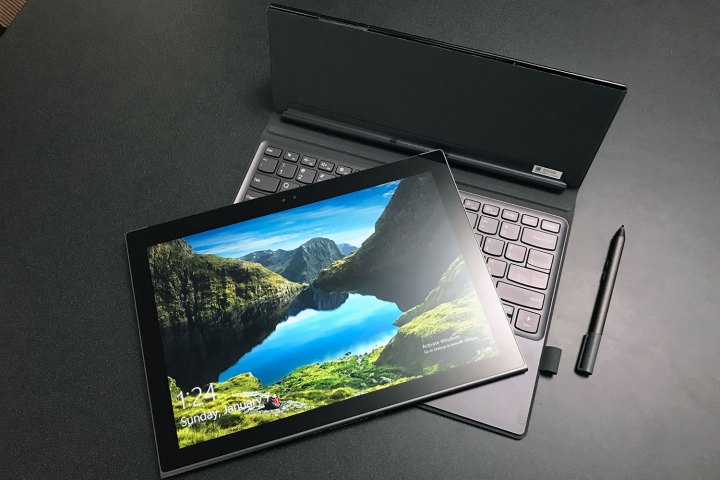
Qualcomm and Microsoft teamed up to roll out its “Always Connected PC” platform at CES 2018, built around Snapdragon processors and always-on LTE connectivity. Now, cell carrier Sprint is cooking up a free data deal to lure Always Connected PC owners to its service. Anyone who brings an Always Connected PC — either the Lenovo Miix 630, HP Envy x2, or Asus NovaGo can get free LTE from Sprint until the end of 2018. That’s when the free data switches over to a standard monthly data plan.
The free LTE data disappears on December 31 but luckily Always Connected PC owners are not on the hook if they just want to swing by for the free data and cancel before the end date. That means if you currently have one of the aforementioned laptops, you can snag unlimited free LTE from Sprint without any obligation.
If you’re planning on taking advantage of the deal, be warned that you will be required to turn on autopay so remember to set a calendar reminder to cancel before December 31. Or stick around.
Qualcomm and Microsoft’s joint effort to put Always Connected PCs is still a work in progress. By most accounts, the laptops come close to delivering on Microsoft and Qualcomm promises, but reviews so far have been problematic. These computers offer decent performance with exceptional battery life and always-on connectivity, but it remains unclear whether or not this new device category will pick up steam heading into 2019.
“Throughout the history of personal computing, a steady wave of progress has changed how we interact with technology in both our work and personal lives,” Microsoft’s Terry Myerson said in a statement. “Microsoft and our partners have led many of these shifts in technology like enabling the original mobile computer. We are again at the beginning of another major technology shift: The ability to be connected anytime, anywhere with Always Connected PCs that are instantly on, always connected with incredible battery life.”
This glowing endorsement of the platform comes in stark contrast to Microsoft’s more recent messaging, as illustrated in an interview with TechRadar.
“We don’t equate ‘Always Connected PC’ with Qualcomm,” Microsoft’s Erin Chappie toldTechRadar. “We’re about choice in the ecosystem and working across our partners.”


